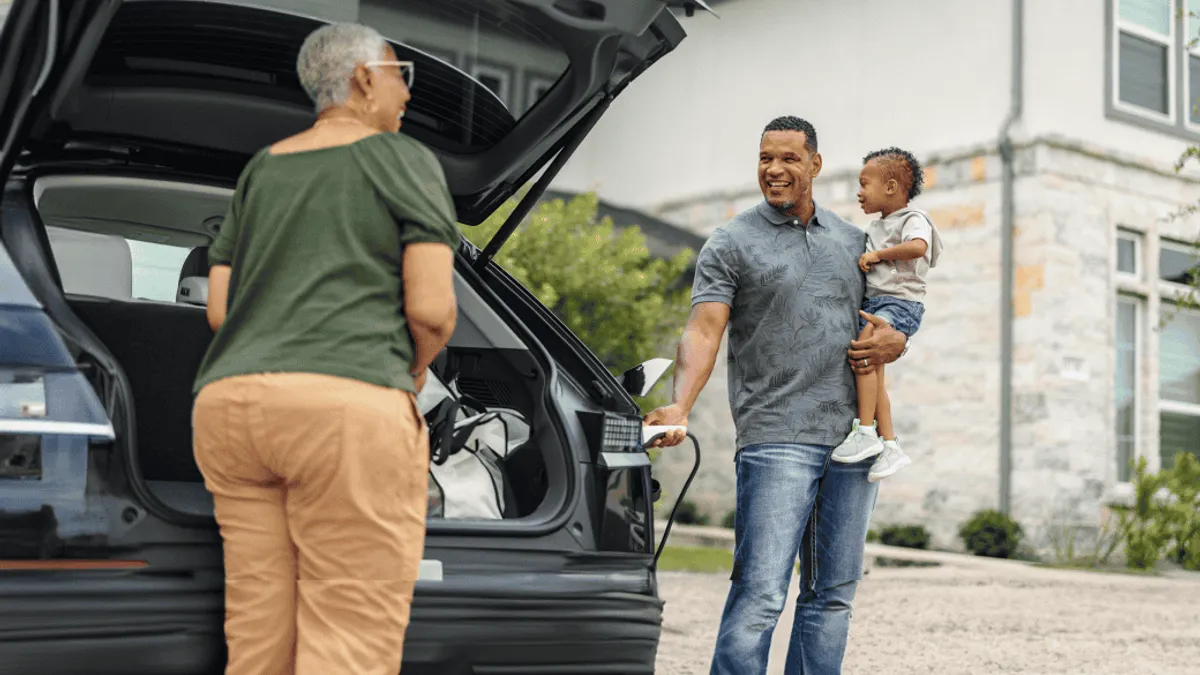Between state and federal funding, incentives for electric vehicles (EVs) are at an all-time high across the United States. And while EV sales continue to increase each year, the rate of EV sales is slowing down as the demand from early adopters fades. EVs in the US cut greenhouse gas emissions by around two-thirds over a car's lifespan. So it's no wonder environmental organizations are pushing customers to switch for climate reasons. But should it stay that way? According to VEIC – a clean energy nonprofit that helps cities and states transition to electric vehicles and fleets – appealing to the mass market requires a change in strategy. EVs are good for so much more than the planet, and it's time we start talking about that.
Firstly, organizations and advocates don't need to raise awareness of the environmental benefits of EVs. People make this association on their own. Efficiency Vermont – an energy efficiency program run by VEIC – conducted a survey in 2021 investigating what people prioritize when choosing a vehicle and what they think about EVs specifically. They found that most customers associate EVs with environmental benefits, and in some cases, that association pays off. Income-qualified customers who bought EVs using Vermont's low- and moderate-income incentives listed the environmental impact as a substantial reason they drive electric. But in other cases, this association holds customers back from making the switch.
Efficiency Vermont spoke with one driver who worried about how his family might perceive him if he drove an EV. He commented, “If I were to pick up my boys in an EV, they’d laugh [and say], ‘You’re getting soft, Dad.’” This negative connection between EVs and customer identity extends beyond Vermont. In a survey of rural New Englanders VEIC conducted on behalf of The Nature Conservancy, one respondent claimed, "Your car is a representation of who you are, and people have a wariness about wearing an environmental commitment on their sleeve." This sentiment was apparent in a 2024 Gallup poll, which found a significant gap in the percentage of Democrats and Republicans who would consider buying an EV in the future. In a culture that is so divided, we need to elevate EVs from identity politics that permeate so many buying decisions. And that means pushing EVs beyond green and blue spaces.
Perhaps more importantly, drivers do not cite the environment as a primary consideration when buying a car. Efficiency Vermont's survey found this to be true across the state, but other research validates these findings on a national scale. A March 2024 Statistica poll found that the top five priorities for customers when buying a new car are – in order – fuel efficiency, safety, price, quality and comfort. Conveniently enough, EVs can address all five.
These benefits are also important to large vehicle drivers. VEIC led a pilot program with eight electric buses in Montana schools. After driving electric vehicles, bus drivers reported being most impressed by the quieter rides these vehicles offer. One driver even said, “It’s a very quiet ride – like a ride at Disneyland.” Following the successful pilot, VEIC helped deploy an additional nine buses.
"The takeaways are clear," said Brian Picariello, VEIC's Clean Transportation Lead. "Let's stop promoting EVs as only environmentally friendly but also highlight their convenience (a full "tank" every morning! Reduced maintenance!), comfort (Quiet! No exhaust smell!) and fun factor (Acceleration!)."
Aside from raising attention to this broad range of EV benefits, climate organizations, marketers and auto dealers might also better use their platforms by addressing barriers to EV purchases. The higher price tags on EVs are a major reason many drivers stick to gas-powered cars, and government funding aims to change that. Yet 46% of Americans have not heard about any available EV incentives. These incentives apply to used vehicles, too, which is essential to communicate since only 17% of lower-income households buy new cars, and seven out of ten vehicles sold are second-hand.
Electric vehicles are indeed a key part of the US government's strategy to lower carbon emissions. But they can also be a crucial part of how drivers live better lives. Climate policies and incentives are starting to do their part in accelerating EV sales, but it's time for program funders and marketers to switch lanes and use their air space to discuss the benefits customers really care about.
Dealerships and governments don't need to navigate the transportation transition alone. Third-party organizations like VEIC can provide experience and critical bench strength to support EV adoption. For nearly 40 years, VEIC has partnered with transit agencies, school districts and businesses to decarbonize transportation systems. They help groups with data collection, fleet monitoring, technical support and customer outreach.
While climate organizations will undoubtedly play a central role in moving the country towards clean transportation, the first step is one we can all take. Let's broaden the conversation from climate wins to customer wins – starting with our car keys.










